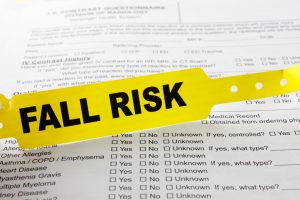 Blood pressure medications may increase seniors’ risk of falls by 30 to 40 percent. Blood pressure medications are commonly prescribed to reduce blood pressure as it is associated with numerous health threats. However, health threats may be coming from the meds as well, as they were found to increase the risk of falls.
Blood pressure medications may increase seniors’ risk of falls by 30 to 40 percent. Blood pressure medications are commonly prescribed to reduce blood pressure as it is associated with numerous health threats. However, health threats may be coming from the meds as well, as they were found to increase the risk of falls.
Blood pressure medications are deemed to be generally safe, but this may only hold true in healthy seniors. In seniors with other chronic conditions, blood pressure medications may increase the risk of falls.
Advertisement
The study included 4,961 patients over the age of 70, with some of them taking blood pressure medications for their diagnosed hypertension.
After a three-year follow-up, those taking blood pressure medications had a higher risk of falls, compared to the patients who did not take the medications. The risk was seen to be higher among those who had a previous history of falls.
Lead author of the study Dr. Mary E. Tinetti said, “Although no single study can settle the question and we cannot exclude the possibility that factors other than the medications accounted for the increased risk of injury, these medications may be more harmful in some individuals than thought.”
Falls in seniors are dangerous and expensive. Falls can contribute to functional decline, restricted activity, and even death.
Dr. Tinetti concluded, “Older patients and their clinicians need to weigh the harms as well as the benefits in prescribing medications, particularly when the harms may be at least as serious as the diseases and events we hope the medications prevent. Patients may find themselves in the tough position of either choosing to continue their blood pressure medication and risk side effects that could lead to life-altering falls, or discontinuing their medications and risk heart attacks and stroke.”
Other strategies to prevent falls
Here are some tips to help reduce the incidence of falls in seniors:
- Have a family member or a friend come to take a “fresh look” at your home – they may point out an obstacle you hadn’t identified, such as a throw rug or cable on the floor, which might cause you to trip.
- Replace light bulbs to provide you with good lighting in all the rooms, staircases, and hallways that you use.
- Make sure your prescription lenses have been recently upgraded by your ophthalmologist. Avoid bifocal lenses, unless absolutely necessary.
- Check the soles of your slippers: if they are worn out, replace them.
- Rearrange your furniture so that your most needed items are within an easy reach from your favorite chair.
- Unclutter your home and dispose of items that are no longer meaningful to you.
- Be careful of slippery surfaces in your kitchen and in your bathroom.
- Consider having an occupational therapist advise you on how to safe-proof your home with grab bars and non-skid equipment.
- Participate regularly in an exercise balance program, such as Tai Chi.
- Get a Life Alert system to summon help in the event of a fall.
- Read side effects listed on medication bottles
